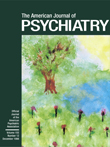The Greatest Benefit to Mankind: A Medical History of Humanity
They are shallow animals; having always employed their minds about Body and Gut, they imagine that in the whole system of things there is nothing but Gut and Body.
“These are strange times, when we are healthier than ever, but more anxious about our health.” Thus begins Roy Porter’s superb history of disease and medical practice, ranging from Imbotep, the physician-god of Egypt, to today’s organ transplants.
Healthier we are: in 50 years a million Americans may be older than 100, many of them fairly fit but still needing a lot of expensive medical care. We are also a nation of hypochondriacs. A huge proportion of television and print media is devoted to health. Billions are spent on nostrums (called alternative medicine) and other billions on prescription drugs supposed to make you feel better.
Except for tuberculosis, malaria, AIDS, and other, mainly third-world, afflictions, infectious diseases that killed most of us in the nineteenth century have been conquered (although not to the extent that media coverage of each new E. coli death does not fan the anxiety that keeps joggers jogging and the rest of us cooking our hamburgers to 165ºF).
Porter, a distinguished British medical historian, writes with wit and grace. With his usual flair he has written a book that is readable and scholarly. Hippocrates existed, Porter writes, but absolutely nothing is known about him. Typhus, not the Russians, defeated Napoleon. War, conquest, and empire pave the way for pathogens. The Spanish conquistadors were “immunological supermen”; defenseless native populations dropped before them like flies, often because of flies. The Spaniards spent their childhoods in seaports that served as clearinghouses for swarms of diseases converging from Africa and Asia. Survival in this hazardous environment required becoming hyperimmune.
Man’s best friend—the dog—is a disease carrier, as are all domesticated and farmyard animals. Horses are carriers of the common cold. Destroying animal reservoirs such as mosquitoes and rats is easy compared with eliminating dogs, cats, and horses. (Among many, pets inspire more love than human beings.)
The book is rich in these insights. Starting with physicians of antiquity, Porter seems to favor Coleridge’s observation over that of Samuel Johnson, who viewed doctors as mankind’s greatest benefactors (hence the ironical title). Whether Porter is writing about medieval times, Indian and Chinese medicine, or Western heart surgeons, he remains politely skeptical. He admires Vesalius, Harvey, and Pasteur, but few others—even fewer psychiatrists. He has little good to say about Freud. He gives grudging praise to Esquirol and Pinel. He notes that Griesinger, Maynert, and Carl Wernicke hoped to make psychiatry scientific but failed. He concludes,
The claims of brain scientists to understand consciousness and its terrors have been shown to be shallow, indeed deluded. Whether civilization’s treatment of the mentally ill has become more humane in a century which gassed to death tens of thousands of schizophrenics is a question which permits no comforting answers about rationality and sanity.
Porter is not, however, antidoctor. Doctors mirror the limitations of their times. “For centuries,” he writes, “medicine was impotent.…Its [recent] triumphs are dissolving.…Medicine has led to inflated expectations, which the public eagerly swallows. Yet as those expectations become unlimited, they are unfulfillable: medicine will have to redefine its limits even as it extends its capacities.”



